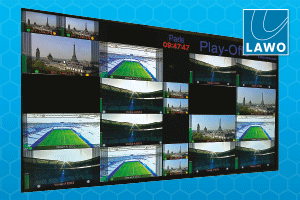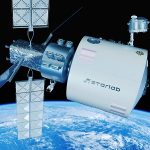Nanoracks will be the prime contractor with Voyager handling strategy and investment and Lockheed serving as the manufacturer and technical integrator.
 Nanoracks, in collaboration with Voyager Space and Lockheed Martin, has formed a team to develop the first-ever free-flying commercial space station.
Nanoracks, in collaboration with Voyager Space and Lockheed Martin, has formed a team to develop the first-ever free-flying commercial space station.
The space station, known as Starlab, will be a continuously crewed commercial platform, dedicated to conducting critical research, fostering industrial activity, and ensuring continued US presence and leadership in low-Earth orbit. Starlab is expected to achieve initial operational capability by 2027.
These industry leaders will develop Starlab specifically to enable the growing space economy and meet pent-up customer demand for space services such as materials research, plant growth, and astronaut activity.
Speaking about the collaboration, Jeffrey Manber, CEO and Co-Founder of Nanoracks, said: “Since the beginning, Nanoracks has sought to own and operate a private space station to fully unlock market demand. Our team has spent the last decade learning the business of space stations, understanding customer needs, charting market growth, and self-investing in private hardware on the ISS like the Bishop Airlock. Nanoracks and our team are excited to work with NASA and our friends across the world as we move forward with Starlab.”
NASA recently announced the Commercial Low-Earth Orbit Destination (CLD) project to support the development of private space stations. CLD will stimulate a multifaceted LEO economy and provide science and crew capabilities in LEO before the International Space Station (ISS) retires.
Nanoracks will prime the Starlab development effort leveraging over a decade of experience as the pathfinder of and global leader in commercial ISS utilisation. Voyager Space, the majority shareholder in Nanoracks, will lead strategy and capital investment and Lockheed Martin will serve as the manufacturer and technical integrator.
The basic elements of the Starlab space station include a large inflatable habitat, designed and built by Lockheed Martin, a metallic docking node, a power and propulsion element, a large robotic arm for servicing cargo and payloads, and a state-of-the-art laboratory system to host comprehensive research, science, and manufacturing capability. Starlab will be able to continuously host up to four astronauts for conducting critical science and research.
Lisa Callahan, Vice President and General Manager, Commercial Civil Space at Lockheed Martin, added: “We’re excited to be part of such an innovative and capable teamone that allows each company to leverage their core strengths. Lockheed Martin’s extensive experience in building complex spacecraft and systems, coupled with Nanoracks’ commercial business innovation and Voyager’s financial expertise allows our team to create a customer-focused space station that will fuel our future vision. We have invested significantly in habitat technology which enables us to propose a cost-effective, mission-driven spacecraft design for Starlab.”
Nanoracks’ Starlab business model is designed to enable science, research, and manufacturing for global customers, and bring added value to long-duration sovereign astronaut missions. Starlab will also serve tourism and other commercial and business activities.
Dylan Taylor, Voyager Space Chairman & CEO, stated: “Voyager Space is highly confident in the Starlab business model and its ability to be commercially sustainable and well-capitalised. Voyager Space sees numerous synergies leveraging the capabilities across our organization’s operating businesses, as well as within the Lockheed Martin ecosystem. We see this partnership as just the beginning of our work together.”











































































